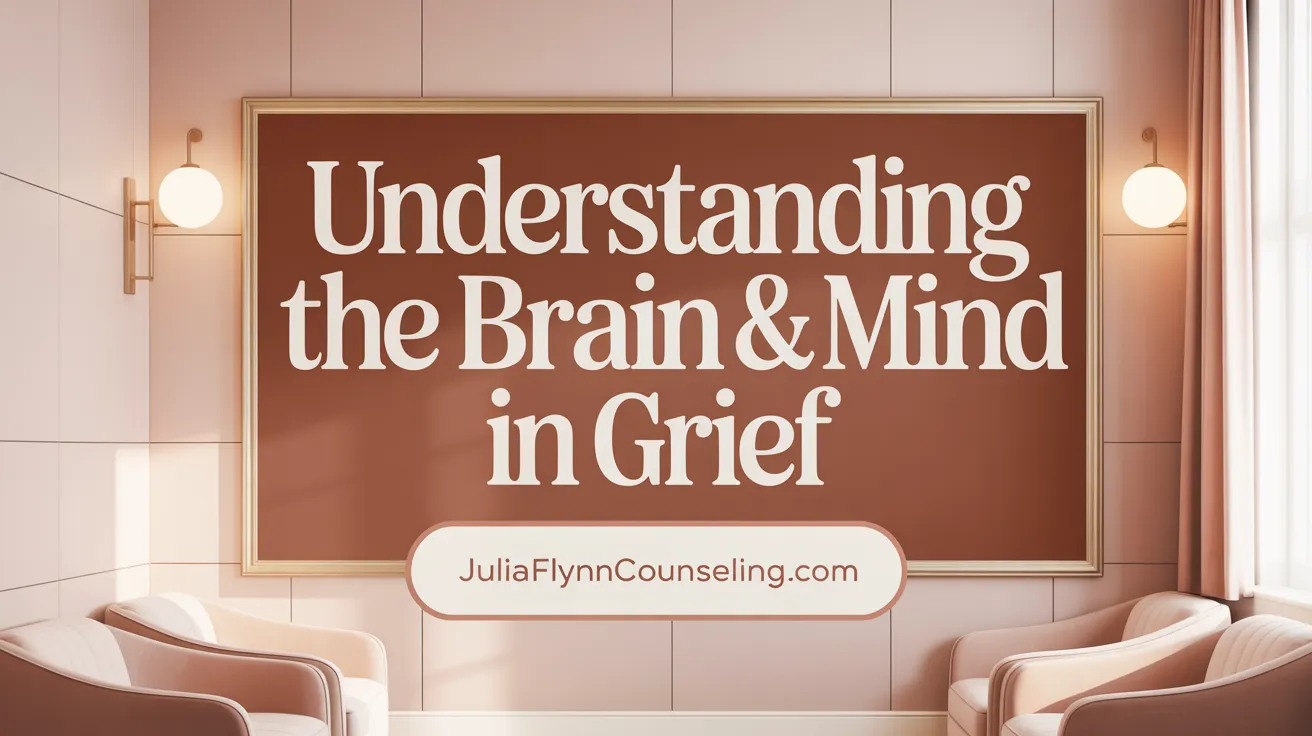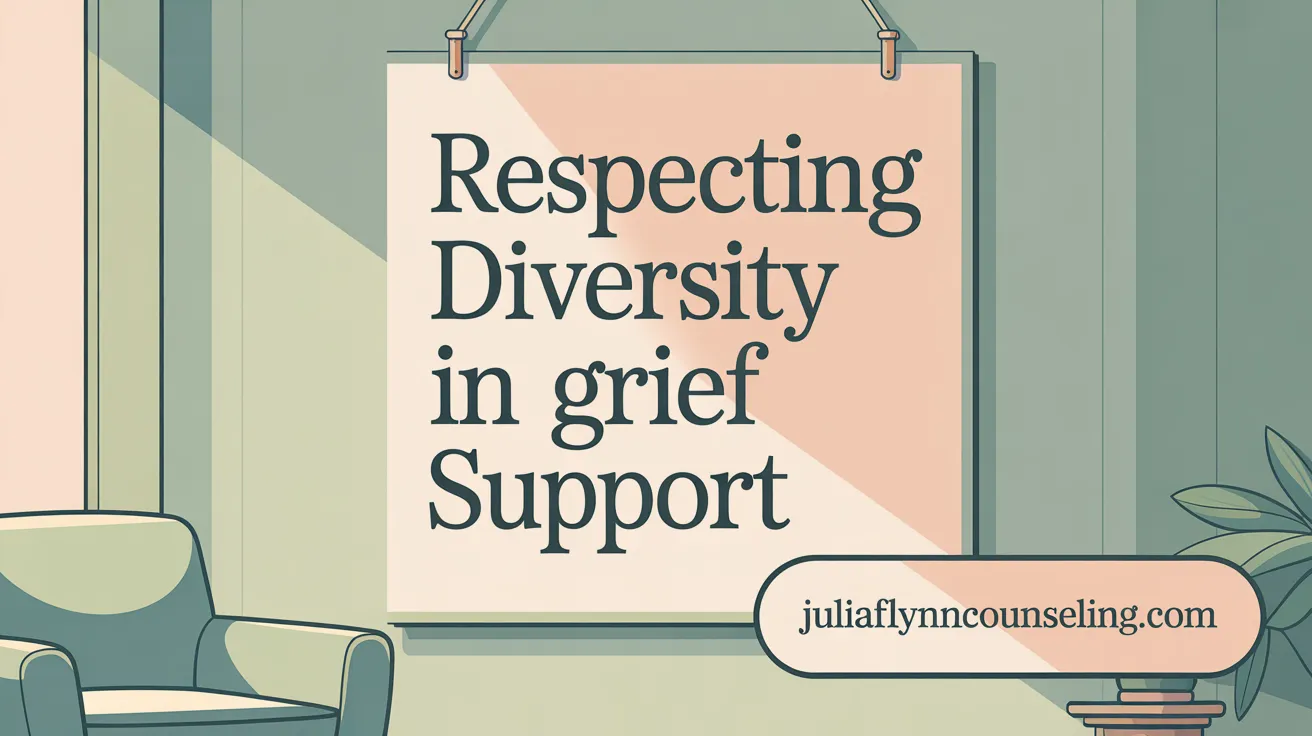Understanding the Role of Counseling in Grief and Growth
Loss is a deeply personal experience, and coping with grief requires compassionate guidance and tailored support. Counseling offers a vital resource for navigating the turbulent emotions of loss, facilitating healing, and fostering personal growth. This article explores how counseling supports individuals suffering from grief, the evidence-based practices employed, psychological and neurological effects of grief, and the journey towards post-traumatic growth. It also highlights specialized strategies for children and culturally sensitive approaches, emphasizing counseling's role in life transitions and positive change.
The Goals and Benefits of Grief Counseling
What are the main goals and benefits of grief counseling for individuals experiencing loss?
Grief counseling serves as a vital support system for those navigating the complex emotions that follow a loss. The primary aim is to help individuals accept the reality of their loved one's passing, which can often be a challenging mental hurdle. It provides a safe space to openly express feelings like sadness, anger, guilt, or disbelief, helping clients process emotional distress in a healthy way.
An essential component of grief counseling is enhancing self-awareness and resilience. Through therapeutic techniques, clients learn to recognize their emotional states, examine unhelpful thought patterns, and develop effective coping strategies. This process not only alleviates immediate suffering but also builds emotional strength to handle future challenges.
The healing benefits extend to repairing relationships damaged or strained due to grief and fostering a renewed sense of hope and purpose. Counseling can assist in finding personal meaning within the grief experience, which is crucial for long-term adjustment.
Furthermore, grief counseling supports individuals in regaining a sense of control over their emotional responses, reducing feelings of helplessness. It encourages healthy adaptation to life without the loved one, promoting mental and emotional well-being.
Ultimately, the goal is to guide clients through a personal journey of healing—transforming grief into growth—by addressing emotional pain, encouraging acceptance, and helping them rebuild their lives in a way that honors their loved one while enabling them to move forward confidently. For more on the benefits and goals of grief counseling, see Benefits of Grief Counseling.
Therapeutic Approaches and Interventions in Grief Counseling
How do various therapeutic approaches and interventions support individuals in grief counseling?
Different therapeutic strategies are designed to help individuals process their grief in personalized and effective ways. Evidence-based methods such as cognitive-behavioral therapy (CBT) for grief assist clients in identifying and reframing negative thoughts related to their loss, promoting healthier thinking patterns and emotional resilience.
Acceptance and Commitment Therapy (ACT) encourages clients to accept their feelings without judgment and focus on personal values, aiding in emotional acceptance and ongoing adjustment to grief. Complicated Grief Therapy (CGT) is tailored for prolonged or intense grief reactions; it involves revisiting the circumstances of the loss, processing emotions, and gradually helping clients re-engage with life.
In addition to talk therapy, creative and expressive techniques play a crucial role. Role-playing, imagery visualization, writing letters to the deceased, and creating memorials help clients externalize their feelings and find meaningful ways to remember loved ones. Use of symbolism, art, or digital memorials can reinforce emotional processing and foster connection.
Assessment tools like the Hogan Grief Reaction Checklist are utilized to evaluate an individual's grief severity and tailor treatment plans accordingly. Interventions are often individualized, considering the client’s unique reactions and circumstances, such as traumatic or complicated grief.
Overall, these approaches aim to facilitate acceptance, support emotional expression, and develop coping mechanisms, all helping clients adjust gradually while maintaining a respectful connection to the loved ones they mourn. Personalized treatment plans and professional guidance ensure that interventions address specific needs, promoting healing and resilience in the grieving process.
Psychological and Neurological Effects of Grief

What are the psychological and neurological effects of grief on an individual?
Grief significantly influences both the mental state and brain functioning of an individual. Psychologically, it can cause intense feelings such as sadness, yearning, anxiety, anger, and difficulties with concentration or decision-making. These emotional symptoms are often coupled with physical manifestations like fatigue, sleep disturbances, and immune suppression.
Neurologically, grief activates specific brain regions associated with emotional regulation and pain perception. Research indicates that areas like the amygdala, which processes fear and emotional memories, and the nucleus accumbens, involved in craving and reward, become highly engaged during grief. These regions reflect the brain’s response to attachment loss, underpinning the deep emotional pain and longing experienced. For detailed insights, see How grief changes the brain.
Furthermore, grief triggers hormonal responses that prepare the body for survival, such as elevated cortisol levels, increased heart rate, and autonomic nervous system activation. These physiological stress responses can temporarily impair sleep, weaken immune defenses, and affect cognitive function, including memory and problem-solving.
In cases of prolonged or traumatic grief, neuroplastic changes may occur, leading to maladaptive neural wiring that reinforces distress, difficulty trusting oneself or others, and ongoing emotional pain. This can elevate the risk of developing health problems like cardiovascular disease, immune dysfunction, and mental health disorders such as depression and anxiety. Effective therapies and interventions for such grief can be explored in resources on Complicated grief therapy and Prolonged grief disorder.
Understanding how grief influences brain activity and bodily functions is crucial in creating interventions that support emotional regulation, resilience, and physical health. For example, therapies incorporating mindfulness, cognitive restructuring, and social support aim to modulate neural responses, facilitating healthier processing of grief. Techniques such as Cognitive Behavioral Therapy for grief, Mindfulness in grief counseling, and Yoga for grief coping are common therapeutic methods.
Overall, grief’s impact on the brain underscores the importance of holistic approaches in therapy, addressing both the emotional suffering and neurobiological changes to promote recovery and well-being. For comprehensive perspectives on grief counseling and therapy approaches, see Grief Counseling Strategies and Healing grief with counseling.
Facilitating Psychological and Post-Traumatic Growth Through Counseling
What is post-traumatic growth and how can counseling support it?
Post-traumatic growth (PTG) refers to positive psychological changes that emerge after individuals confront highly challenging experiences, such as grief or trauma. It involves shifts in areas like appreciating life, fostering stronger relationships, discovering new possibilities, and spiritual or philosophical development. Counseling plays a pivotal role in guiding individuals through this complex process by creating a supportive environment where they can safely explore their emotions and beliefs (What Is Posttraumatic Growth (PTG)?, Post-traumatic growth (PTG), Post-traumatic growth).
Phases of post-traumatic growth and their relevance in therapy
PTG typically unfolds across several stages, including initial trauma processing, grieving, and eventually reconstructing core beliefs about oneself and the world. Therapeutic approaches aim to facilitate this progression by helping individuals grieve loss, challenge negative assumptions, and develop a renewed sense of purpose. Recognizing these phases enables counselors to tailor interventions that nurture growth, encouraging clients to reflect on their experiences and identify meaningful transformations (Understanding Posttraumatic Growth, Phases of Posttraumatic Growth).
Techniques that promote growth and meaning-making
Counselors employ various techniques to support growth, including cognitive restructuring and meaning-making exercises. These approaches help clients reframe harmful or limiting beliefs, transforming their narrative about the trauma or loss. For example, using storytelling and narrative therapy allows clients to articulate their journey, find personal strength, and develop new life goals. Mindfulness and emotional awareness practices also foster resilience, enabling clients to accept their feelings while remaining open to positive change (Techniques for coping with loss, Narrative therapy for grief, Cognitive Behavioral Therapy for grief, Mindfulness-Based practices).
Emotional awareness and resilience building
Building emotional awareness is central to PTG. Therapy encourages clients to observe their feelings without judgment and recognize their capacity for resilience. Techniques such as mindfulness, grounding exercises, and emotional regulation strategies assist clients in managing distress, reducing fear and hopelessness. As they gain emotional strength, individuals become more capable of embracing change, optimism, and continued growth (Mindfulness in grief counseling, Building emotional resilience with counseling, Therapeutic techniques overview).
The importance of social support and cultural considerations
Social and cultural contexts significantly influence PTG. Counseling often incorporates support networks—family, friends, community groups—whose validation and encouragement reinforce the growth process. Additionally, culturally sensitive approaches ensure that interventions respect personal beliefs, spiritual practices, and traditions, making the pathway toward growth more accessible and meaningful. Combining these elements, therapy helps individuals transform their grief into opportunities for deeper understanding, connection, and personal development (Culturally sensitive grief interventions, Community participation in cultural adaptation, Christian counseling and grief support).
Research and ongoing applications
Research highlights that PTG can occur alongside ongoing distress, with many individuals reporting meaningful life changes even amid pain. Counseling interventions—such as trauma-focused therapy, narrative techniques, and culturally tailored support—are effective in facilitating these positive transformations. As understanding of PTG expands, practitioners continue to develop innovative strategies to help clients harness their resilience, ultimately fostering growth following even the most profound losses (Post-traumatic growth (PTG): psychological theory, Psychological interventions for PTG, Therapies promoting Post Traumatic Growth).
More information search query: post traumatic growth counseling
Supporting Children and Specific Populations in Grief Processing
What strategies are effective for supporting children and other specific populations in processing grief?
Supporting children and particular groups through grief requires tailored approaches that respect their developmental, cultural, and emotional needs. One fundamental strategy is providing developmentally appropriate communication. This means being honest about death without using euphemisms that might confuse or frighten children. Explaining the reality in a simple, truthful way helps foster understanding and trust.
Expressive therapies are highly effective, especially for children. Activities such as drawing, storytelling, music, or creating memorial projects encourage emotional expression and help children externalize their feelings. Play therapy for children provides a safe space where they can process grief symbolically and through imaginative activities.
Maintaining routines offers stability and a sense of safety, which is crucial during times of loss. Consistent daily schedules, familiar environments, and predictable activities help children feel secure and supported in their grief journey.
Tailoring interventions to align with cultural beliefs and personal circumstances enhances their effectiveness. This might involve integrating religious rituals, culturally specific mourning practices, or alternative methods like planting a tree or creating a memory garden as symbols of ongoing connection and closure, as discussed in culturally sensitive grief interventions.
Caregivers play a pivotal role. Providing guidance on how to discuss death honestly, modeling healthy emotional responses, and fostering open communication create a supportive environment for children. Educating parents, teachers, and community members on how to support grieving children ensures consistent and sensitive care, as emphasized in perspectives on grief and loss.
Incorporating psychosocial interventions such as legacy projects or therapeutic support might involve creating memory books, performing rituals, or engaging in expressive arts. These activities promote resilience and help the individual, whether child or adult, process complicated or prolonged grief (Grief Counseling Techniques).
Collaboration among mental health professionals, families, schools, and community organizations ensures the delivery of culturally sensitive and individualized support. Regular monitoring for signs of complicated grief or distress is essential. When needed, referral to specialized professionals can prevent long-term emotional difficulties (Complicated Grief Therapy).
In summary, effective grief support for children and specific populations revolves around honest communication, creative expression, stability, cultural sensitivity, caregiver involvement, and ongoing professional support. These strategies foster resilience and healthy mourning, respecting each person's unique grieving process.
Evidence-Based Practices and Research Supporting Grief Therapy
 Research supports several evidence-based practices that have proven effective in grief therapy techniques, with substantial validation from clinical trials. These include Cognitive Behavioral Therapy (CBT), which helps individuals reframe negative thoughts related to their loss, and Complicated Grief Therapy (CGT), a specialized 16-session program targeting persistent and intense grief reactions. Trauma-focused CBT (TF-CBT) and Multidimensional Grief Therapy are also well-established, addressing trauma elements and the multifaceted nature of grief respectively.
Research supports several evidence-based practices that have proven effective in grief therapy techniques, with substantial validation from clinical trials. These include Cognitive Behavioral Therapy (CBT), which helps individuals reframe negative thoughts related to their loss, and Complicated Grief Therapy (CGT), a specialized 16-session program targeting persistent and intense grief reactions. Trauma-focused CBT (TF-CBT) and Multidimensional Grief Therapy are also well-established, addressing trauma elements and the multifaceted nature of grief respectively.
Clinical trials have shown that these therapies significantly reduce grief-related distress, enhance emotional adaptation, and facilitate a natural mourning process. For example, CGT has been demonstrated to effectively decrease symptoms of intense longing and preoccupation with the deceased, promoting psychological healing. Treatment protocols are often tailored to specific populations, including children experiencing grief and adults with complicated grief, thereby improving outcomes.
Family and group therapy modalities contribute to long-term benefits by strengthening communication skills and providing mutual support. Programs like the Family Bereavement Program and Resilient Parenting for Bereaved Families help reduce mental health issues and foster resilience among participants.
Support networks, peer support programs, and online resources complement formal therapy, offering immediate and accessible help while encouraging personal growth. Support helplines and virtual groups serve as vital adjuncts, especially during periods of social distancing or for individuals reluctant to seek face-to-face help.
Assessment tools like the Inventory of Complicated Grief and the Prolonged Grief Disorder scale assist clinicians in personalizing treatment plans accurately. These instruments allow therapists to evaluate grief severity and tailor interventions based on individual needs.
Long-term studies indicate that these evidence-based practices not only reduce immediate grief symptoms but also promote sustained psychological well-being. Continued research and application of these methods confirm their central role in effective grief management, underscoring their importance for mental health professionals dedicated to assisting the bereaved.
The Role of Counseling in Navigating Life Transitions and Fostering Positive Change

How does grief counseling contribute to navigating life transitions and fostering positive change after loss?
Grief counseling is essential for guiding individuals through the emotional and physical responses following significant losses or life changes. It offers a safe, supportive environment where clients can openly express feelings such as sadness, anger, guilt, or anxiety. This validation helps reduce feelings of isolation and promotes emotional healing (The Benefits of Counseling in Times of Bereavement, The Role of Counseling in Navigating Life Transitions).
Counselors employ tailored approaches, including cognitive-behavioral therapy (CBT), narrative therapy, mindfulness, and expressive arts, to help clients develop healthy coping strategies (Grief Counseling Therapy Techniques, Grief Therapy Techniques). These techniques foster resilience, enabling individuals to adapt more effectively to their new circumstances (Counseling for Personal Growth).
One of the core functions of grief counseling is helping individuals redefine their purpose and find new meaning after loss. This process involves exploring personal values, revisiting past strengths, and setting achievable goals for the future (Post Traumatic Growth (PTG), Grief and Personal Growth).
Furthermore, counseling supports the adaptation to new roles, such as becoming a caregiver or adjusting to life without a loved one. It encourages personal growth by challenging maladaptive thoughts and habits, turning the experience of grief into an opportunity for positive transformation (The Impact of Counseling on Personal Growth, Grief Counseling and Life Transitions).
Overall, grief counseling not only manages symptoms of distress but also facilitates personal growth and adaptive functioning, helping individuals emerge stronger and with a renewed sense of purpose during life's inevitable transitions (Healing Grief with Counseling, Personal Growth Through Therapy).
Culturally Sensitive and Specialized Approaches in Grief Counseling
 Understanding and respecting the diverse mourning practices and beliefs about death across cultures is crucial in grief counseling techniques. Different cultures have unique rituals, customs, and expressions of grief that influence how individuals process loss. For example, some cultures may hold specific ceremonies, prayer rituals, or communal gatherings that serve as vital supports.
Understanding and respecting the diverse mourning practices and beliefs about death across cultures is crucial in grief counseling techniques. Different cultures have unique rituals, customs, and expressions of grief that influence how individuals process loss. For example, some cultures may hold specific ceremonies, prayer rituals, or communal gatherings that serve as vital supports.
Therapeutic techniques are often adapted to reflect these cultural elements. Counselors may incorporate culturally relevant rituals or symbols into therapy sessions, such as using traditional storytelling, cultural art forms, or spiritual practices that resonate with the client's background. For children, expressive arts and play therapy can be tailored to include culturally familiar materials and narratives, fostering emotional expression within their cultural framework (Grief Counseling Techniques, Expressive arts in grief counseling, Play therapy for children).
The role of family and community support is emphasized in culturally sensitive approaches. Engaging family members in therapy and facilitating community involvement can strengthen the grieving process and foster a sense of belonging and validation. Recognizing the importance of collective mourning helps validate the client's cultural identity and enhances trust (Culturally sensitive grief interventions, Community participation in cultural adaptation).
Training in cultural competence is a vital component for professionals. Such education involves understanding one’s own cultural biases, learning about the client’s cultural background, and developing skills to navigate cultural nuances respectfully. Collaboration with cultural consultants or community leaders can enrich the intervention process (Cultural adaptation in grief treatment).
Incorporating spiritual and religious elements, when appropriate, offers additional comfort and meaning. This may include integrating biblical scriptures, prayer, or spiritual counseling aligned with the client’s faith (Christian counseling and grief support). Overall, honoring cultural differences in grief responses promotes trust, facilitates emotional expression, and ensures that healing processes are respectful, relevant, and effective for each individual (Grief Counseling, Grief counseling techniques).
The Transformative Power of Grief Counseling
Grief counseling offers a compassionate, evidence-based pathway for individuals to navigate the intense emotions following loss while fostering resilience, growth, and renewed purpose. Through diverse therapeutic techniques and culturally sensitive practices, counseling addresses the complex psychological and neurological impacts of grief, supporting both healing and post-traumatic transformation. Specialized strategies ensure that children and diverse populations receive tailored care, while research confirms the effectiveness of these interventions in facilitating healthy mourning and adaptation. Ultimately, counseling acts not only as a refuge for emotional expression but also as a catalyst for personal development, guiding individuals to emerge stronger and more connected after profound loss.
